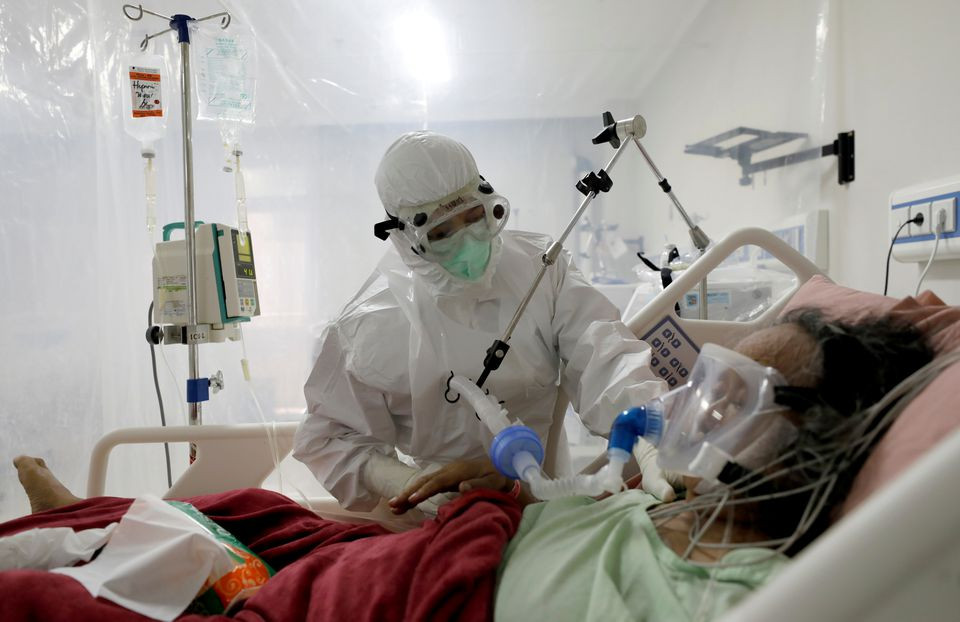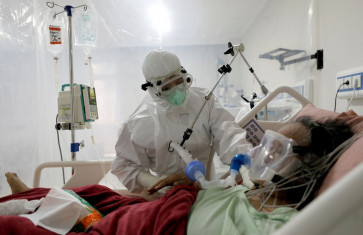Popular Reads
Top Results
Can't find what you're looking for?
View all search resultsPopular Reads
Top Results
Can't find what you're looking for?
View all search resultsConcerns grow over removal of mandatory health spending in omnibus bill
Change text size
Gift Premium Articles
to Anyone
H
ealth experts have expressed concerns over a decision by lawmakers to scrap provisions on mandatory health spending in the latest draft of the omnibus bill on health, fearing that it may undermine the ongoing efforts to transform the health system after the COVID-19 pandemic.
Under the prevailing 2009 Health Law, the government must allocate at least 5 percent of the state budget for public health every year and provincial administrations at least 10 percent of their regional budgets. This does not include the salaries and benefits of government employees working in the health sector.
The House of Representatives and the government have been debating whether or not the provisions should be included in the proposed omnibus health bill, which would supplant 10 laws, including the health law, in a single stroke.
The government says that the mandatory spending has led to ineffective budget expenditure at the regional level because local health authorities must spend all their allocated budgets even if the spending is unnecessary.
"A lot of regional health officials have reallocated the health budget from the central government for unnecessary purposes, for example using grants allocated for stunting prevention to conduct [unnecessary] meetings or to build fences around community health centers," Health Ministry spokeswoman Siti Nadia Tarmizi told The Jakarta Post recently.
"We want to change this. We want local health officials to formulate their programs first and allocate the budget according to their needs, so they can focus on formulating good projects with clear targets instead of on how to spend all the allocated funds," she added.
Nadia said that even without the minimum cap, the government would still allocate more than 5 percent of the state budget for the health sector annually.



















